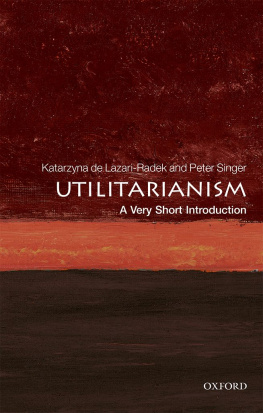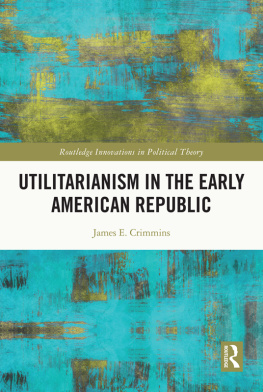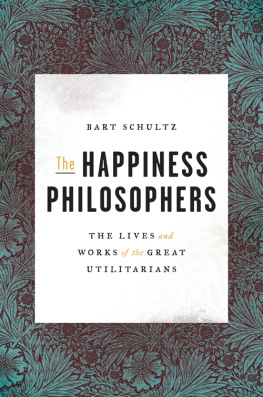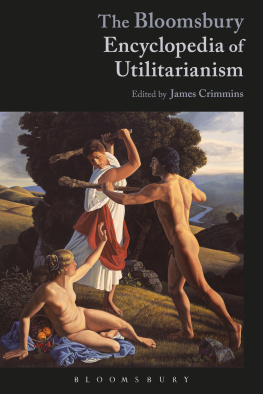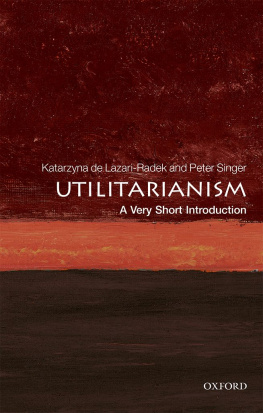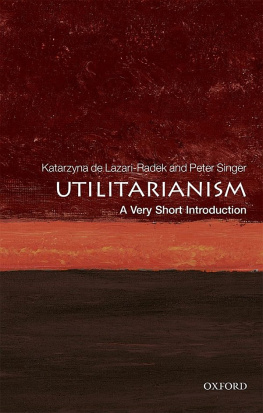VERY SHORT INTRODUCTIONS are for anyone wanting a stimulating and accessible way into a new subject. They are written by experts, and have been translated into more than 45 different languages.
The series began in 1995, and now covers a wide variety of topics in every discipline. The VSI library now contains over 500 volumesa Very Short Introduction to everything from Psychology and Philosophy of Science to American History and Relativityand continues to grow in every subject area.
Very Short Introductions available now:
ACCOUNTING Christopher Nobes
ADOLESCENCE Peter K. Smith
ADVERTISING Winston Fletcher
AFRICAN AMERICAN RELIGION Eddie S. Glaude Jr
AFRICAN HISTORY John Parker and Richard Rathbone
AFRICAN RELIGIONS Jacob K. Olupona
AGEING Nancy A. Pachana
AGNOSTICISM Robin Le Poidevin
AGRICULTURE Paul Brassley and Richard Soffe
ALEXANDER THE GREAT Hugh Bowden
ALGEBRA Peter M. Higgins
AMERICAN HISTORY Paul S. Boyer
AMERICAN IMMIGRATION David A. Gerber
AMERICAN LEGAL HISTORY G. Edward White
AMERICAN POLITICAL HISTORY Donald Critchlow
AMERICAN POLITICAL PARTIES AND ELECTIONS L. Sandy Maisel
AMERICAN POLITICS Richard M. Valelly
THE AMERICAN PRESIDENCY Charles O. Jones
THE AMERICAN REVOLUTION Robert J. Allison
AMERICAN SLAVERY Heather Andrea Williams
THE AMERICAN WEST Stephen Aron
AMERICAN WOMENS HISTORY Susan Ware
ANAESTHESIA Aidan ODonnell
ANARCHISM Colin Ward
ANCIENT ASSYRIA Karen Radner
ANCIENT EGYPT Ian Shaw
ANCIENT EGYPTIAN ART AND ARCHITECTURE Christina Riggs
ANCIENT GREECE Paul Cartledge
THE ANCIENT NEAR EAST Amanda H. Podany
ANCIENT PHILOSOPHY Julia Annas
ANCIENT WARFARE Harry Sidebottom
ANGELS David Albert Jones
ANGLICANISM Mark Chapman
THE ANGLO-SAXON AGE John Blair
ANIMAL BEHAVIOUR Tristram D. Wyatt
THE ANIMAL KINGDOM Peter Holland
ANIMAL RIGHTS David DeGrazia
THE ANTARCTIC Klaus Dodds
ANTISEMITISM Steven Beller
ANXIETY Daniel Freeman and Jason Freeman
THE APOCRYPHAL GOSPELS Paul Foster
ARCHAEOLOGY Paul Bahn
ARCHITECTURE Andrew Ballantyne
ARISTOCRACY William Doyle
ARISTOTLE Jonathan Barnes
ART HISTORY Dana Arnold
ART THEORY Cynthia Freeland
ASIAN AMERICAN HISTORY Madeline Y. Hsu
ASTROBIOLOGY David C. Catling
ASTROPHYSICS James Binney
ATHEISM Julian Baggini
THE ATMOSPHERE Paul I. Palmer
AUGUSTINE Henry Chadwick
AUSTRALIA Kenneth Morgan
AUTISM Uta Frith
THE AVANT GARDE David Cottington
THE AZTECS Davd Carrasco
BABYLONIA Trevor Bryce
BACTERIA Sebastian G. B. Amyes
BANKING John Goddard and John O. S. Wilson
BARTHES Jonathan Culler
THE BEATS David Sterritt
BEAUTY Roger Scruton
BEHAVIOURAL ECONOMICS Michelle Baddeley
BESTSELLERS John Sutherland
THE BIBLE John Riches
BIBLICAL ARCHAEOLOGY Eric H. Cline
BIOGRAPHY Hermione Lee
BLACK HOLES Katherine Blundell
BLOOD Chris Cooper
THE BLUES Elijah Wald
THE BODY Chris Shilling
THE BOOK OF MORMON Terryl Givens
BORDERS Alexander C. Diener and Joshua Hagen
THE BRAIN Michael OShea
BRANDING Robert Jones
THE BRICS Andrew F. Cooper
THE BRITISH CONSTITUTION Martin Loughlin
THE BRITISH EMPIRE Ashley Jackson
BRITISH POLITICS Anthony Wright
BUDDHA Michael Carrithers
BUDDHISM Damien Keown
BUDDHIST ETHICS Damien Keown
BYZANTIUM Peter Sarris
CALVINISM Jon Balserak
CANCER Nicholas James
CAPITALISM James Fulcher
CATHOLICISM Gerald OCollins
CAUSATION Stephen Mumford and Rani Lill Anjum
THE CELL Terence Allen and Graham Cowling
THE CELTS Barry Cunliffe
CHAOS Leonard Smith
CHEMISTRY Peter Atkins
CHILD PSYCHOLOGY Usha Goswami
CHILDRENS LITERATURE Kimberley Reynolds
CHINESE LITERATURE Sabina Knight
CHOICE THEORY Michael Allingham
CHRISTIAN ART Beth Williamson
CHRISTIAN ETHICS D. Stephen Long
CHRISTIANITY Linda Woodhead
CIRCADIAN RHYTHMS Russell Foster and Leon Kreitzman
CITIZENSHIP Richard Bellamy
CIVIL ENGINEERING David Muir Wood
CLASSICAL LITERATURE William Allan
CLASSICAL MYTHOLOGY Helen Morales
CLASSICS Mary Beard and John Henderson
CLAUSEWITZ Michael Howard
CLIMATE Mark Maslin
CLIMATE CHANGE Mark Maslin
CLINICAL PSYCHOLOGY Susan Llewelyn and Katie Aafjes-van Doorn
COGNITIVE NEUROSCIENCE Richard Passingham
THE COLD WAR Robert McMahon
COLONIAL AMERICA Alan Taylor
COLONIAL LATIN AMERICAN LITERATURE Rolena Adorno
COMBINATORICS Robin Wilson
COMEDY Matthew Bevis
COMMUNISM Leslie Holmes
COMPLEXITY John H. Holland
THE COMPUTER Darrel Ince
COMPUTER SCIENCE Subrata Dasgupta
CONFUCIANISM Daniel K. Gardner
THE CONQUISTADORS Matthew Restall and Felipe Fernndez-Armesto
CONSCIENCE Paul Strohm
CONSCIOUSNESS Susan Blackmore
CONTEMPORARY ART Julian Stallabrass
CONTEMPORARY FICTION Robert Eaglestone
CONTINENTAL PHILOSOPHY Simon Critchley
COPERNICUS Owen Gingerich
CORAL REEFS Charles Sheppard
CORPORATE SOCIAL RESPONSIBILITY Jeremy Moon
CORRUPTION Leslie Holmes
COSMOLOGY Peter Coles
CRIME FICTION Richard Bradford
CRIMINAL JUSTICE Julian V. Roberts
CRITICAL THEORY Stephen Eric Bronner
THE CRUSADES Christopher Tyerman
CRYPTOGRAPHY Fred Piper and Sean Murphy
CRYSTALLOGRAPHY A. M. Glazer
THE CULTURAL REVOLUTION Richard Curt Kraus
DADA AND SURREALISM David Hopkins
DANTE Peter Hainsworth and David Robey
DARWIN Jonathan Howard
THE DEAD SEA SCROLLS Timothy H. Lim
DECOLONIZATION Dane Kennedy
DEMOCRACY Bernard Crick
DEPRESSION Jan Scott and Mary Jane Tacchi
DERRIDA Simon Glendinning
DESCARTES Tom Sorell
DESERTS Nick Middleton
DESIGN John Heskett
DEVELOPMENTAL BIOLOGY Lewis Wolpert
THE DEVIL Darren Oldridge
DIASPORA Kevin Kenny
DICTIONARIES Lynda Mugglestone
DINOSAURS David Norman
DIPLOMACY Joseph M. Siracusa
DOCUMENTARY FILM Patricia Aufderheide
DREAMING J. Allan Hobson
DRUGS Les Iversen
DRUIDS Barry Cunliffe
EARLY MUSIC Thomas Forrest Kelly
THE EARTH Martin Redfern
EARTH SYSTEM SCIENCE Tim Lenton
ECONOMICS Partha Dasgupta
EDUCATION Gary Thomas
EGYPTIAN MYTH Geraldine Pinch
EIGHTEENTHCENTURY BRITAIN Paul Langford
THE ELEMENTS Philip Ball
EMOTION Dylan Evans
EMPIRE Stephen Howe
ENGELS Terrell Carver
ENGINEERING David Blockley
ENGLISH LITERATURE Jonathan Bate
THE ENLIGHTENMENT John Robertson
ENTREPRENEURSHIP Paul Westhead and Mike Wright
ENVIRONMENTAL ECONOMICS Stephen Smith

